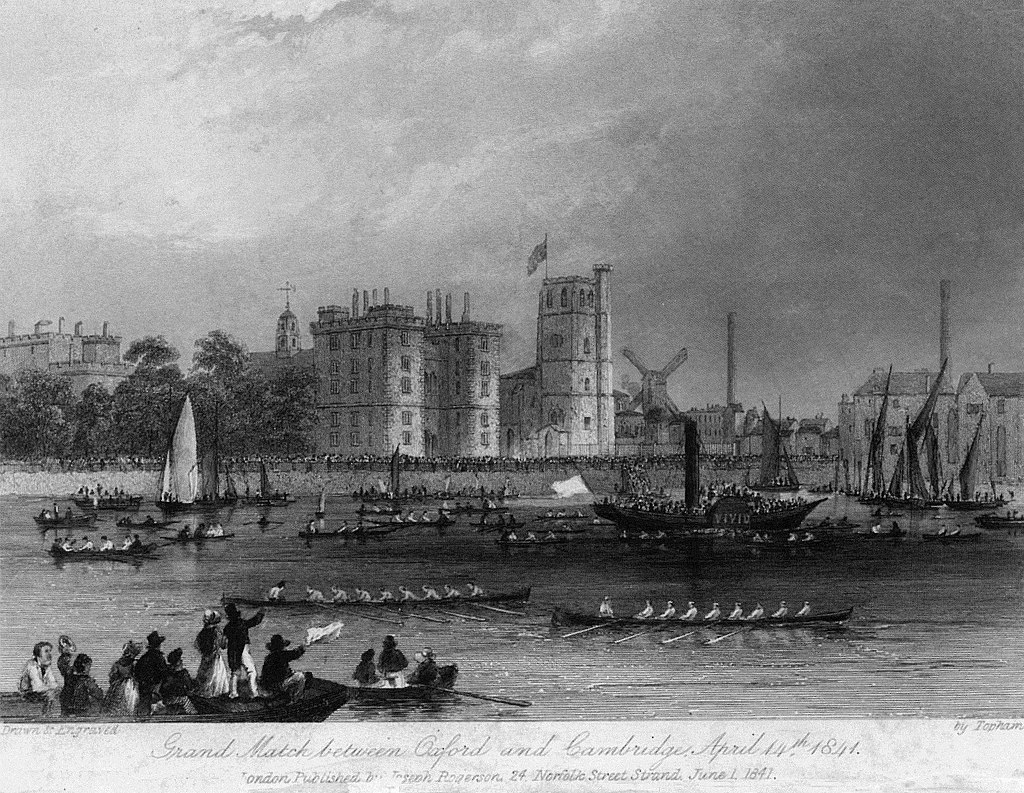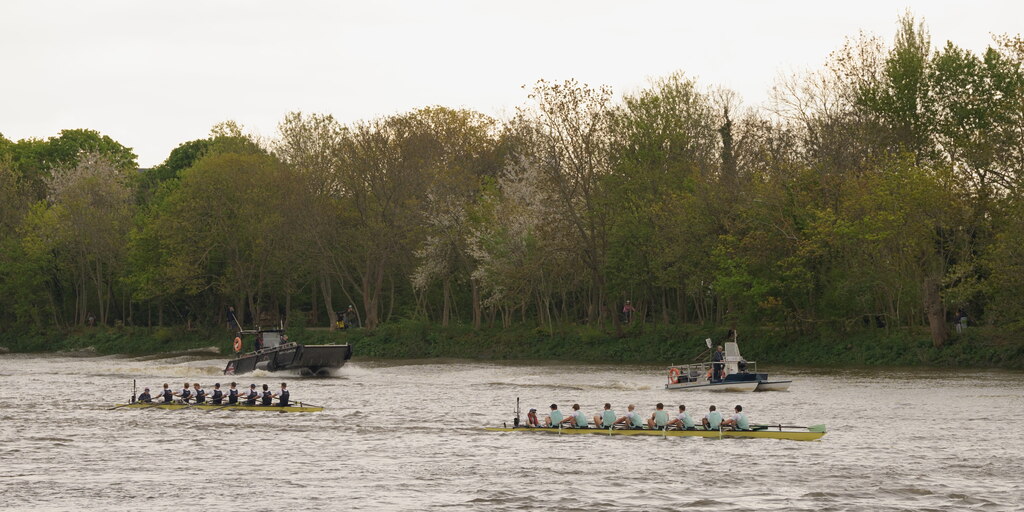
It took only 16 minutes and 57 seconds for the Cambridge men’s eight to row across the finish line in a decisive victory over Oxford.
The Boat Race, an annual rowing competition between the two elite universities, has taken place since 1829 for men (it became annual in 1856) and since 1927 for women.

My husband and I try to watch the race each year. As former rowers, it gives us a chance to reminisce (and armchair-quarterback). Due to technology issues, we missed the women’s race this year. (Bummer, too, because it sounds like it was eventful, with an oar clash and a restart.) But we got it together in time to catch the men’s race.
Before the race, the commentators were, of course, commentating. While Cambridge had dominated the past several years, a close race was expected. On paper at least, Oxford had a winning team, and due to eligibility challenges, the Cambridge crew had lost two key rowers.
Both crews started strong, but Cambridge quickly took the lead. My husband and I noticed how smoothly Cambridge was rowing and how calm they looked—even their faces and shoulders looked relaxed. Our observations were quickly echoed by the commentators: The rowing looked effortless.
Let me assure you, rowing that looks effortless is not effortless. At this level, it’s notoriously hard work. The Cambridge crew had reached the pinnacle of what rowers call “swing”—an elusive feeling of synchronized power, flow, and momentum.
Oxford was by no means rowing poorly—they rowed a strong race—but Cambridge was mesmerizing.
They beat Oxford by five and a half boat-lengths—about 17 seconds. That, my friends, was a decisive win.

cc-by-sa/2.0 – © Peter Trimming – geograph.org.uk/p/8022650
(Oxford at left in dark blue, Cambridge at right in light blue)
So what does all this rowing talk have to do with writing books?
In the post-race interviews, one of the Cambridge crew members mentioned they had been training for this race since September. Generally, training at this level means two long, hard workouts a day (one usually starting around 5:30 a.m.), six days a week, plus erg tests and seat racing to determine who makes the A boat.
Months of training—for 17 minutes of rowing that looked effortless.
And that’s where we get to writing.
Your book is the race. Writing the book is the training. It takes months (or more) of work to create what, for a reader, is a relatively short experience.
If your reader has a good experience reading the book, you win.
And if all the stars align—an engaging topic, strong writing, good editing—you might achieve that appearance of effortlessness. And as with rowing, anything that looks effortless is not effortless.
If writing a book feels hard, that’s because it is. Keep going.
Your reader might not see all the work, but I do. I see you. I see your work.
You got this.
One of my favorite compliments is hearing readers say that a client’s book “flowed so smoothly”—like oars in the water with perfect technique. Need a coach to row alongside you? Get in touch at karin@clearsightbooks.com.

